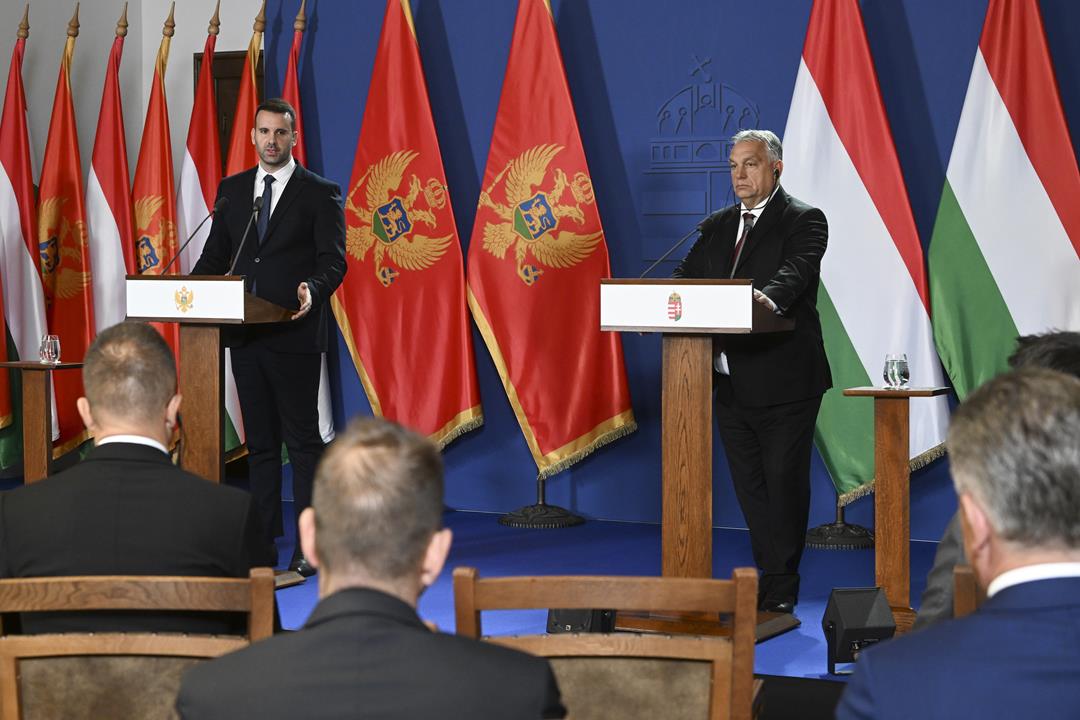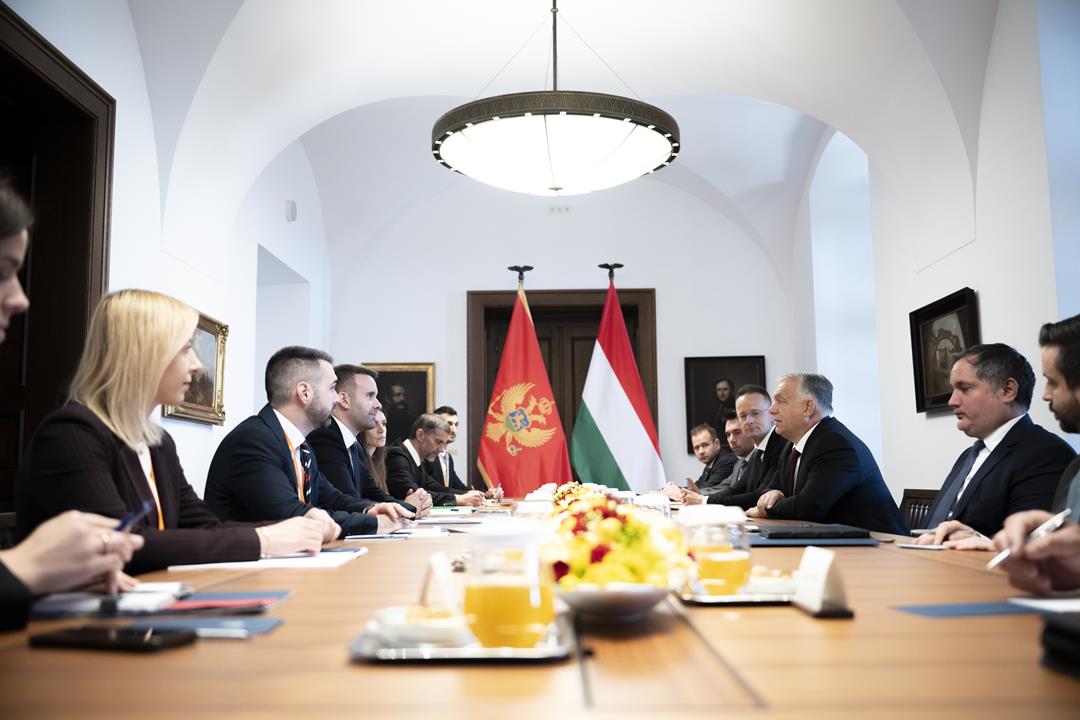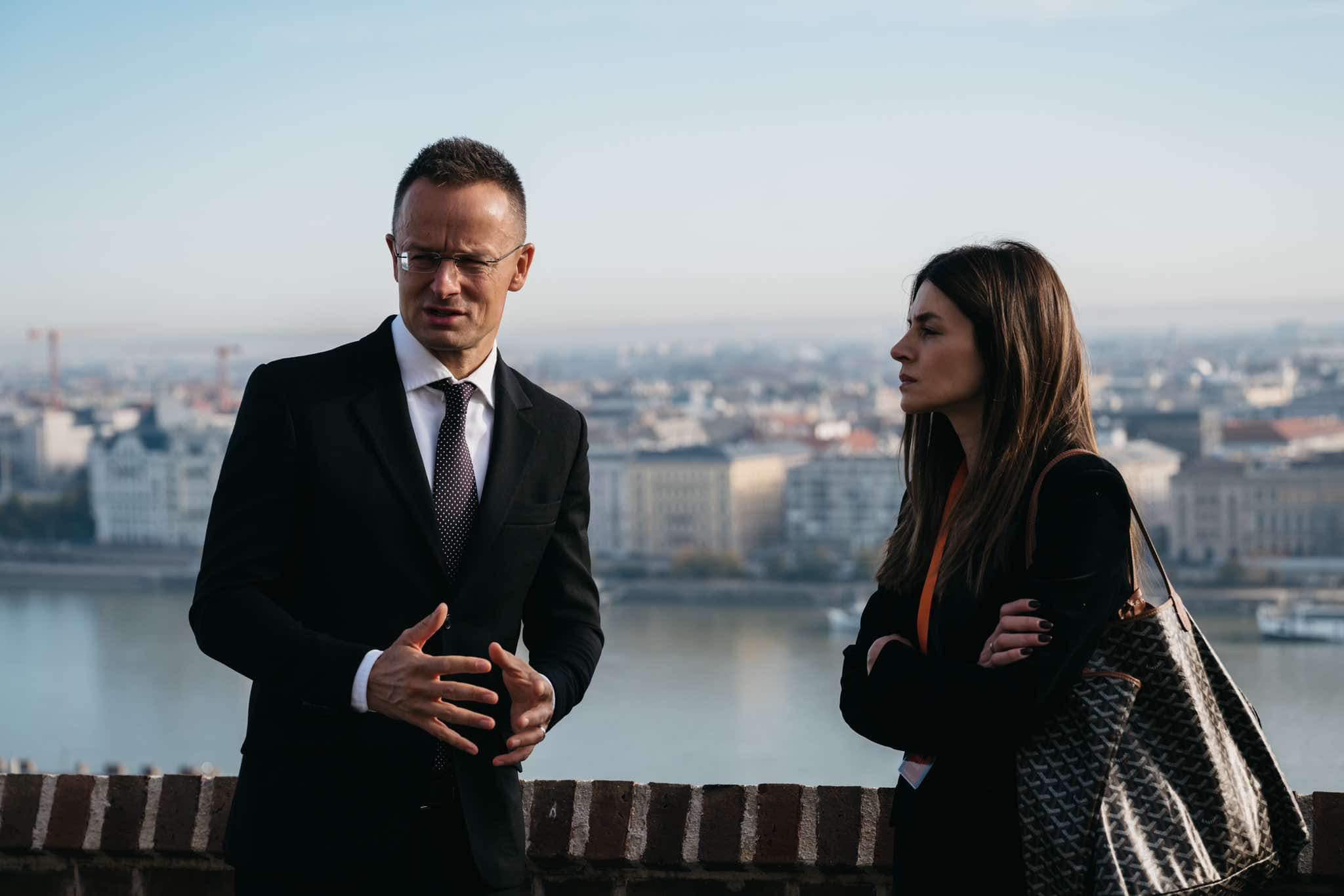Hungary’s PM Orbán wants this Balkans country to join the EU ASAP
Change language:
Whatever happens in world politics, Hungary and Montenegro can count on each other, “see each other positively” and have no political or economic conflict, Prime Minister Viktor Orbán said on Thursday, after talks with Montenegrin counterpart Milojko Spajic in Budapest.
Orbán welcomed Spajic’s first official visit to Hungary, and that they were able to discuss bilateral and international issues alike.
The Brics summit, “the summit of the eastern world”, is under way in Kazan with 31 countries in attendance, and Hungary is about to host a “meeting of the West”, with the leaders of more than 40 countries expected, Orbán said.
“We can now speak openly of the EU’s ailments; since Mario Draghi published his report, this taboo has become an open topic,” Orbán said.
Orbán said that currently, the European Union’s enlargement was one of the most important international issues. The bloc’s competitiveness is falling, its economic weight in the world waning, he warned, adding that and Hungary is promoting to inject “new momentum and resources” in the bloc’s economy by the integration of the countries of the Western Balkans.

Montenegro is possibly the best-prepared country in the region, Orbán said, praising the region’s states for doing a “fantastic job” in adapting the EU’s judiciary system. Nevertheless, not a single chapter of the accession process had been concluded in seven years, he said.
The EU had “neglected” Western Balkans enlargement and the process had started to lag then stopped, Orbán said. The Hungarian presidency of the European Council had pledged to “change that sorry state of affairs,” he said. Four chapters are expected to be closed in December, “which is a huge step”, and four others are close to being concluded, he said.

Bilateral cooperation between Hungary and Montenegro has also been thriving, with bilateral trade “breaking records nearly every year”, and Hungarian companies playing an important role in Montenegro’s economy, Orbán said. Electricity trade and Hungarian bank OTP are thriving, Podgorica is connected “with several European cities” by Hungarian discount airline Wizz Air, and Hungarian telecom company 4iG is the second largest player on the Montenegrin market, he said.
Orbán noted that Montenegro also welcomed Hungarian companies and invited further invesetors at the talks on Thursday.






